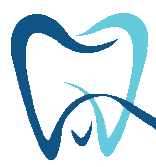
At the office of All Bright Dental PC, we emphasize that a healthy smile is a cornerstone of overall well-being. Oral health is closely connected to the rest of the body, and routine dental care helps identify small problems before they become more serious. Left unchecked, simple infections or chronic gum disease can contribute to broader health concerns, so prevention and early detection are central to maintaining both oral and systemic health.
Oral tissues provide an early window into a patient's general health. Inflammation, infection, and changes in the mouth can signal underlying conditions or create pathways for bacteria to affect other systems. Regular dental care reduces the bacterial load in the mouth, limits chronic inflammation, and supports healthy tissue function — all factors that contribute to better long-term health.
Scientific research links periodontal disease and other oral infections with an increased risk for conditions such as heart disease, diabetes complications, respiratory problems, and certain inflammatory disorders. While oral issues are not always the direct cause of these conditions, maintaining good oral hygiene and attending routine dental visits helps reduce risk and enables timely coordination with a patient's medical providers when concerns arise.
Prevention is a proactive approach: by managing plaque, monitoring gum health, and treating minor issues early, patients avoid more invasive procedures and the potential systemic effects of chronic oral disease. This practical, preventative mindset protects smiles and supports overall wellness through every life stage.
A well-designed preventative program covers more than just a professional cleaning. It begins with a thorough oral exam to evaluate teeth, gums, bite alignment, soft tissues, and the airway. Diagnostic tools such as digital X-rays and oral cancer screening are used judiciously to detect hidden problems early while keeping radiation exposure minimal.
Professional hygiene appointments remove hardened deposits (calculus) and biofilm that regular brushing cannot, and they allow our clinicians to identify early cavities, gum inflammation, or enamel wear. Additional services that strengthen prevention include topical fluoride applications for patients at higher risk of decay and pit-and-fissure sealants for children and vulnerable adult surfaces.
Preventative care also includes risk assessment and monitoring for conditions like gum disease and tooth erosion. When clinicians identify elevated risk, they design an intensified maintenance plan that may include more frequent cleanings, targeted home-care recommendations, and collaboration with specialists when appropriate.
Routine dental visits are scheduled with the goal of preventing disease and catching issues in their earliest stages. Many patients benefit from exams and cleanings twice a year, but frequency is personalized based on individual risk factors such as a history of gum disease, dry mouth, tobacco use, diabetes, or orthodontic appliances.
During a preventative visit, clinicians perform a focused clinical exam, evaluate periodontal measurements, update medical and dental histories, and document any changes since the last appointment. Professional cleaning removes deposits and polishes enamel, while the clinician discusses findings and outlines recommended next steps when necessary.
These visits are also opportunities for screening: oral cancer examinations, bite and TMJ assessments, and checks for signs of bruxism or erosion. Early detection through routine appointments increases treatment options and typically reduces the complexity of care required later on.
Daily habits form the foundation of a successful preventative program. Effective brushing twice a day with the right technique, daily interdental cleaning (floss or interdental brushes), and mindful nutrition choices all reduce plaque accumulation and strengthen enamel. Our team focuses on teaching practical, sustainable methods that fit each patient's lifestyle.
Education also covers helpful adjuncts like antimicrobial rinses and the role of saliva in protecting teeth. For patients with dry mouth, dietary adjustments and specific oral products can mitigate risk. Children receive age-appropriate guidance to establish lifelong routines, and caregivers are shown how to support those routines in young children.
Behavioral factors such as tobacco use and nighttime grinding are addressed with clear, evidence-based strategies. We work with patients to set achievable goals, demonstrate techniques, and recommend tools that improve daily care — because small, consistent actions at home yield the greatest long-term benefits.
Prevention is a team effort. Our clinicians combine clinical skill with modern diagnostics and a patient-centered approach to create preventative plans that are practical and effective. We review each patient's risk profile, track changes over time, and adjust maintenance schedules to reflect evolving needs.
Coordination with a patient's broader healthcare team is an important part of comprehensive care. When appropriate, we communicate findings that may relate to systemic conditions and suggest steps to manage oral health in tandem with medical treatments. This collaborative approach ensures a more complete picture of health and supports better outcomes.
The office environment is designed to make preventative care approachable and comfortable, with focused education at every visit so patients leave informed and empowered. By prioritizing early detection, personalized maintenance, and clear home-care guidance, All Bright Dental PC helps patients preserve healthy smiles for years to come.
In summary, a proactive preventative program protects oral tissues, supports overall health, and minimizes the need for complex treatments. Regular exams, professional cleanings, targeted preventive measures, and consistent home care work together to keep smiles healthy. Contact us for more information about how our preventative services can fit into your long-term wellness plan.

At the office of All Bright Dental PC, a preventative dental program is a structured plan of care designed to maintain oral health and prevent disease before it starts. It typically includes routine exams, professional cleanings, oral cancer screenings, and personalized homecare guidance tailored to each patient. The goal is to identify early warning signs and address minor issues before they become more complex.
A preventative program also emphasizes patient education and risk assessment so care is proactive rather than reactive. By combining clinical services with at-home routines, the program helps reduce the likelihood of cavities, gum disease, and other oral health problems. Regular participation supports long-term oral health and contributes to overall well-being.
Regular dental checkups allow clinicians to monitor changes in the mouth that may signal early disease or risk factors. These visits provide the opportunity for professional plaque and tartar removal, which home care cannot always accomplish, and for timely treatment recommendations. Early detection of decay, gum inflammation, and other conditions often means less invasive care and better outcomes.
Checkups also include screenings for oral cancer and assessments of how oral health may relate to systemic conditions such as diabetes and cardiovascular disease. With consistent visits, dental professionals can track trends in your oral health and adjust preventive strategies accordingly. This continuity of care supports both short-term comfort and long-term oral stability.
For most patients, routine preventive visits are recommended every six months to maintain optimal oral hygiene and monitor oral health status. However, the ideal frequency can vary based on individual risk factors such as a history of gum disease, smoking, medication use, medical conditions, or a propensity for cavities. Your dental team will assess your unique needs and suggest a schedule that balances vigilance with convenience.
Patients at higher risk for periodontal disease or recurrent decay may need more frequent visits, such as every three to four months, to manage risk effectively. Conversely, low-risk patients with excellent homecare may be advised to continue semiannual visits. Regular follow-up helps ensure preventive measures remain effective and are adjusted as circumstances change.
A professional dental cleaning begins with a thorough examination of the teeth, gums, and soft tissues to identify areas of concern and to guide the cleaning process. Dental hygienists remove plaque and hardened tartar from tooth surfaces and along the gumline using specialized instruments. This process reduces bacterial load, helps control inflammation, and improves gum health.
After scaling and polishing, the clinician may apply fluoride or other topical agents to strengthen enamel and reduce sensitivity. The visit also includes instruction on brushing and flossing techniques tailored to your mouth so you can maintain results at home. Follow-up recommendations are provided based on the clinical findings.
Preventive visits routinely include an oral cancer screening in which the clinician examines the lips, tongue, cheeks, floor and roof of the mouth, and throat for abnormal tissue or lesions. Early detection is critical because oral cancers identified in initial stages are more treatable and have better prognoses. The screening is quick, painless, and an essential component of a comprehensive preventative program.
If suspicious areas are found during the exam, the dental team will document the findings, recommend appropriate diagnostic steps, and coordinate referral to a specialist if needed. Regularly scheduled screenings increase the likelihood of catching changes early, especially for patients with known risk factors such as tobacco use or heavy alcohol consumption. Clear documentation and monitoring over time help clinicians spot subtle changes that may otherwise go unnoticed.
Effective home care is the foundation of any preventative program and includes brushing twice daily with a fluoride toothpaste and daily interdental cleaning using floss or interdental brushes. Consistent, thorough homecare reduces plaque accumulation and lowers the risk of cavities and gum disease. Proper technique matters, so clinicians often demonstrate brushing and flossing methods and recommend products suited to a patient’s needs.
In addition to regular homecare, patients should maintain a balanced diet, limit frequent sugary snacks and beverages, and avoid tobacco products to support oral health. Hydration and saliva-friendly habits also protect tooth enamel and help neutralize acids. When home habits are combined with professional care, patients achieve the best protection against dental disease.
Yes, topical fluoride applications and dental sealants are evidence-based preventive measures that reduce the risk of tooth decay for patients of various ages. Fluoride helps strengthen enamel and can reverse early mineral loss when applied during professional visits, while sealants provide a protective barrier over the chewing surfaces of molars where decay often begins. Both interventions are quick to apply and are commonly recommended for children and for adults at elevated risk for cavities.
Your dental team will evaluate tooth anatomy, decay history, and individual risk factors before recommending fluoride or sealants. These measures are integrated into a broader preventive strategy that includes cleanings, exams, and homecare. When used appropriately, they significantly decrease the chance of future restorative treatment.
Preventive care establishes healthy habits and protective measures early in life, reducing the likelihood of childhood tooth decay and setting the stage for lifelong oral health. Pediatric visits focus on age-appropriate education, monitoring of dental development, and interventions such as topical fluoride and sealants when indicated. These visits also help children become comfortable with dental care, which supports regular attendance and long-term prevention.
Early preventive care includes monitoring eruption patterns, addressing thumb- or pacifier-related concerns, and advising on nutrition and oral hygiene tailored to developmental stages. By detecting and managing issues early, clinicians can often avoid more complex procedures later on. Parents receive practical guidance to reinforce healthy behaviors at home, strengthening the partnership between the family and the dental team.
Nutrition and lifestyle choices directly influence the oral environment and can either promote or undermine dental health. Diets high in fermentable carbohydrates and frequent snacking increase acid exposure and encourage decay, while diets rich in whole foods, adequate calcium, and limited sugary beverages support enamel integrity. Lifestyle factors such as tobacco use, alcohol consumption, and certain medications can also alter saliva flow and gum health.
Dental professionals assess these risk factors during preventive visits and provide practical recommendations to reduce oral health risks. Counseling may include strategies to manage sugar intake, optimize nutrient choices, and mitigate the effects of medications that reduce saliva. When combined with regular preventive care, positive lifestyle changes greatly improve oral outcomes.
A preventative program is individualized by assessing each patient’s medical history, dental history, oral exam findings, and lifestyle factors to identify specific risks and needs. The dental team then designs a care plan that specifies the frequency of visits, necessary preventive treatments such as fluoride or sealants, and tailored homecare instructions. Personalization ensures resources are directed toward the most effective measures for that patient.
Ongoing communication and periodic reassessment allow the plan to adapt as circumstances change, such as new medications, emerging health conditions, or shifts in oral hygiene. The practice uses these evaluations to refine recommendations and to coordinate care with other healthcare providers when appropriate. This patient-centered approach helps maintain oral health efficiently and proactively in Floral Park and the surrounding communities.

Have questions about your care or want to schedule an appointment?
We are here to make your dental care easy, comfortable, and convenient. Whether you have a question about our services, need help scheduling an appointment, or are ready to take the next step toward a healthier smile, we invite you to reach out. Our friendly team is always happy to assist you. Give us a call, send us a message, or fill out our online contact form. We look forward to hearing from you and welcoming you to our practice.